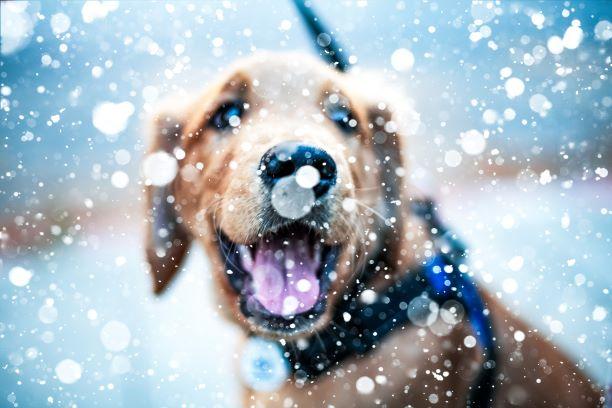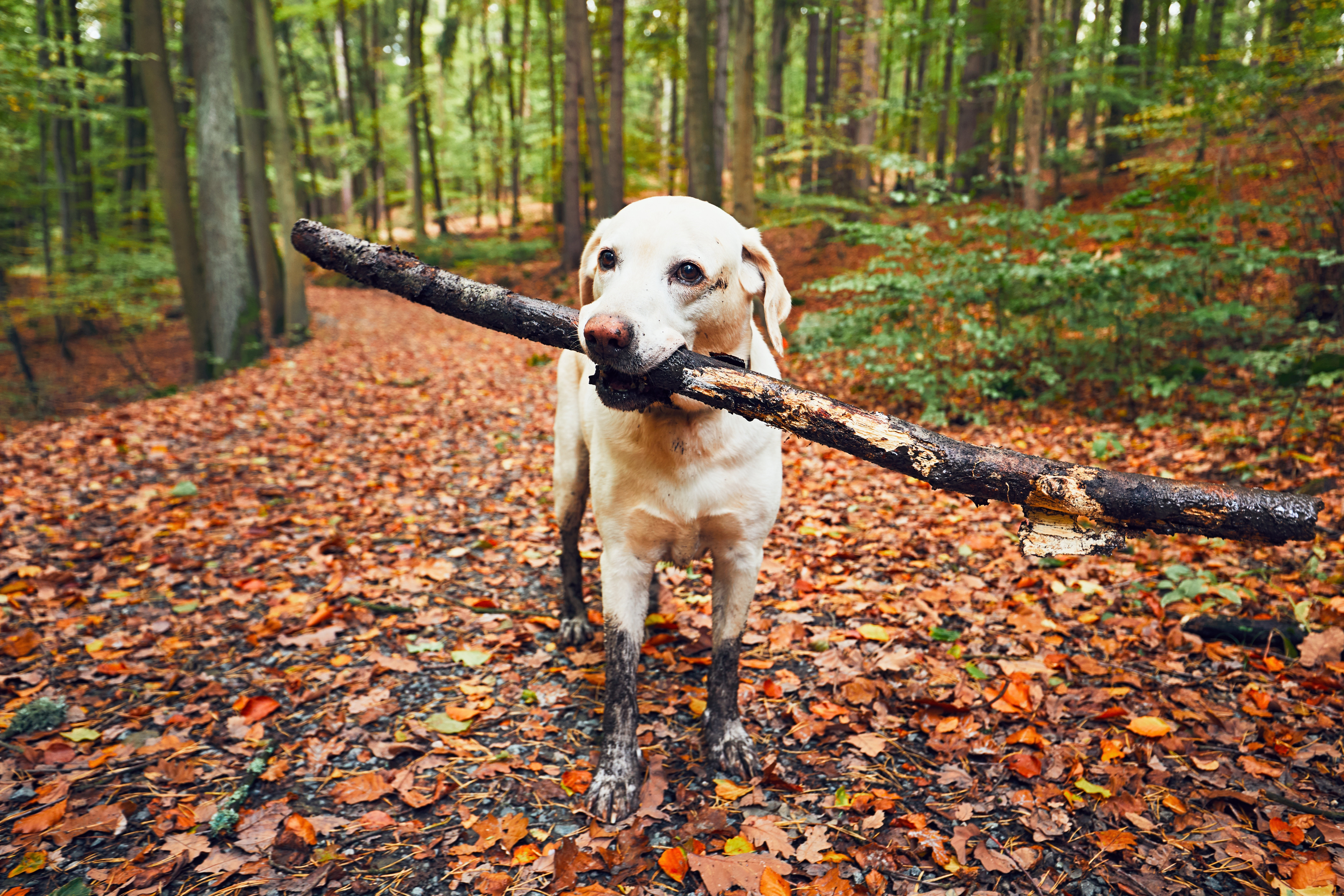Winter pet care tips
Dec 26, 2025 6:47:33 PM

Winter is a lovely time of year for most pets, lots of warm cuddles, scenic walks, and a few extra seasonal treats, but winter can bring its own unique challenges to our furry companions.
1: Respecting limitations
Your pet may be prone to itchy and irritated skin and chapped paws because of a sudden change to freezing dry air or chilly rain during winter. Just like their fur-less-parents, some dogs are more vulnerable to the effects of cold than others. In winter, issues like frostbite and hypothermia pose the biggest risks to pets. The key is to remember, if the temperature is colder for you, it may be unbearable for your dog.
- Dogs with a thin coat, slender body, and older or the very young feel the cold more quickly, so take this into account and limit the time they spend outside.
- A dog sweater or fleece-lined coat is a smart option to warm them up. Try, if possible, to get a waterproof coat because a damp outer layer can make your pet even colder in wetter weather.
2: Avoiding close shaves
In colder snaps, give some extra thought as to how much fur needs trimming, or if any needs trimming at all. Longer coats provide more protection, especially to dogs who prefer to be out on walks, regardless of the weather.
- Perhaps focus on trimming knots, combing out sticking ice balls, and washing off salt crystals picked up during walkies.
- Tip: remember not to overlook the fur between the toes, especially if you have a long-haired dog. Ice balls and salt build-up will be most unwelcome.
3: A pawsome inspection
Checking the paws of your dog is very important, especially during the challenges that winter may provide.
- Look for signs of injury or harm due to cold weather. The cold can affect your pet in many ways, such as broken or irritated pad skin.
- Wipe paws regularly, as, after winter walks, the paws may absorb all sorts of unwanted seasonal chemicals, such as salt or de-icers.
4: Cat nap, car clap
To stay warm, cats sometimes hide in a car's wheel arches during colder months. Starting the engine and moving your car could seriously hurt any cat sleeping in the wheel well. Try clapping and making noise, stamping around the vehicle before starting your engine.
5: Seasonal vigilance
Antifreeze can be sweet-smelling and may attract some curious pets, but it is highly toxic and can cause significant illness, costly vet bills, or even death, if ingested by cats or dogs.
- Ensure that you wipe up any antifreeze that drops in your driveway and store the bottle out of the reach of your pets.
6: Pet protection
It’s a sad fact that the darker months see more household animals lost than at any other time. One reason is that snowfall can obscure familiar scents that would usually assist them to make their way home.
- Ensure your microchip data and registration is up to date. Don’t assume it is.
- Where possible, keep your dog leashed on unfamiliar walks to help prevent them from getting lost.
- A pet tracker is an excellent option and a great Christmas present idea.
7: Ice is not always nice
Common sense is your best friend when sudden climate changes occur, but as creatures of habit, we sometimes benefit from some basic reminders to keep us all happy and healthy.
- Avoid the frozen ponds and rivers while walking your dog. If the ice melts or breaks, your dog can be badly injured, or worse!
- Check outside water bowls for ice, which will prevent your dog from taking on water.
- Top tip: switch to high grade food-standard water bowls to prevent the dog’s tongue making contact with frosted metal surfaces.
8: Plan not panic
An emergency plan sounds extreme, but a little extra thought may prove time well spent. Here are some ideas:
- Plan ahead on food stocks. A sudden snowfall may prevent access to your normal supply. Bulk buying should not be necessary, just a little extra food will provide you with peace of mind.
- Check that you have enough prescribed medicine. Check with your vet regarding how much you should keep handy.
9: Book a feeding/diet review
You pet’s dietary needs may change due to a reduced (or increased, for some) activity level. Diet plays such a key role in keeping your furry friend fit and healthy, so book in for a nutritional review with your local Nutritional Adviser.
- Free life stage and lifestyle assessment
- Remote or in-person (responsibly distanced) consultations available
- British-made recipes, suitable for all breeds, sizes, ages, and activity levels
- Try-before-you-buy samples
- 100% Satisfaction Guarantee
- 5-star Trustpilot rating
- 30 years of pet food and home delivery excellence at your service
Back
Recent Blogs

Keeping Your Furry Friend Safe and Happy During Halloween
Halloween approaches with its festive decorations, spooky costumes, and sweet treats. While humans eagerly anticipate the holiday, it can be a challenging time for our four-legged friends. From unfamiliar sights and sounds to potentially dangerous treats, Halloween can pose various risks to our beloved dogs.
While it might be tempting to dress up your dog in a cute or funny costume, always prioritize their comfort and well-being. Ensure that the costume is not restrictive, does not impede movement, and does not have small parts that could be swallowed. Allow your dog to become accustomed to the costume before the actual event, and keep a close eye on them while they're wearing it.

The vital role of responsible dog ownership.
A Pledge to Paws and Principles
Dogs have long been cherished companions, confidants, and sources of unconditional love for millions of people around the world. These faithful friends offer not only emotional support but also contribute significantly to our overall well-being. However, the joys of having a canine companion come with great responsibilities. Responsible dog ownership is not just a choice; it's an obligation we owe to our four-legged friends, our communities, and ourselves. In this blog, we will delve into the importance of responsible dog ownership and highlight the numerous benefits it brings to our lives.

My dog is a finicky eater...
You have a dog that has no appetite, is fussy and finicky with his food and you are fed up of trying every dog food brand under the sun. Here are our top tips for encouraging a better feeding regime

Finding the best places to walk your dog
The many benefits of dog walking are well documented and regular walks form part of our daily routine. But it is really easy to get into an unthinking pattern of where and how we walk our dogs. There are lots of adventures to be had out there with our canine companions so why not try something new?